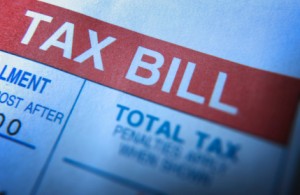Federal Income Tax
United States Federal Income Taxes
Why do I have to pay taxes?
What is federal tax? Taxes are imposed on the net income of an individual, companies, corporations and various businesses by the autonomous states and local governments of the United States of America. The different levels of which taxes are accumulated are through income tax, sales tax, payroll tax, importation of goods, estate tax, gift tax, corporate tax, property tax, excise tax, capital gains tax and other various fees deemed by the state and local governments as included in the federal taxation law.
Taxes are compulsory, an obligation of taxpayers to fulfill as demanded by the law. Who are the taxpayers? Individuals, different forms of organizations, business entities, estates, property owners and trusts are considered taxpayers. Certain taxes such as income tax are compulsory for members of an organization or company. Although partnerships are not taxed, partners are taxed based on their partnership percentage. Common citizens and residents are taxed on a worldwide income whereas non-citizens are only taxed based on their income within the jurisdiction.
Income tax is based on taxable income rate determined by a tax system within a jurisdiction or state, which increases as the income increases as well. The bulk of the earnings those belonging to the top income bracket come from capital gains (profits from investments), dividends and interest. Ordinary income tax has a top marginal rate at 35 percent and an average household rate is less than that. The tax rate paid by a person belonging to the upper income bracket is decidedly reliant on the relative amount of income he or she earns from interests, dividends and capital gains. Payroll tax of 15.3 percent is applied to income up to $106,000.
Taxable income is the total income or the gross income from whatever source it may come from minus the allowed deductions such as business expenses, personal allowances and expenses, charitable contributions, interests on home mortgage and other items that are determined by the taxation law as liable for deductions and are used for federal tax purposes.
Taxpayers are given a choice in choosing their tax year based on the calendar year. They may also change their tax year that requires permission and approval from the IRS (Internal Revenue Service). They are also responsible to determine their taxable income, which is based on their method of accounting for a certain type of activity that uses cash. Charitable organizations and cooperatives may apply to tax exemptions on property taxes and income taxes.
Tax refund claims are possible if taxes are overpaid. The amount of the tax refund can be determined when individuals with income above the minimum level, partnerships, trusts, estates and corporations file an annual report to a federal or a state tax authority.
Although due dates and extensions vary for state and local income tax returns, tax filing are usually due on or before April 15 every year. However, corporations must file their tax returns ten weeks or two and a half months before the partnership’s year end. Tax exemptions returns are due four and a half months or eighteen weeks following the organization’s year end. Electronic tax filing is possible as long as tax returns are done for taxpayers by registered tax preparers. Extensions are possible as long as a page form is filed and submitted before the due date. If taxpayers see an error on their tax return, they can file an amended form.
Federal tax credit is the amount deducted from the total amount that taxpayers owe the state. Grants may also vary depending on the type of credit: payroll withholding of income taxes of PAYE, property taxes, input credits of value added tax, and withholding tax at source on payments of nonresidents. Federal tax credit is granted in recognition of the taxes that were already paid of which are deemed refundable in some systems if taxpayers exceed the relevant tax that should be paid. Individual federal tax credits are available to all taxpayers that may only be offered in a single year. These credits may be based on income, work status, family status and child depended care, elderly and disability allowances, retirement, mortgage interest and other reasons.
Income tax in the United States has various nonrefundable business credits that in most cases, the excess paid in the current year may be carried on to offset future taxes. These federal tax credits may vary from state to state and may include disaster relief credits, alternative fuel credits based on the amount of specific non-petroleum products, alternative motor vehicle credits based on purchases for non-gasoline powered vehicles, credits for increasing research expenses, credits for employing people that are formerly on welfare or from other targeted groups, renewable energy investment tax credits or ITC, federal historic rehabilitation tax credits, federal tax credit on nonrefundable investment, work opportunity tax credits, state tax credits like in various incentive programs by a state, foreign tax credits, VAT, and credits for alternative taxes that is based on alternative measure determining taxable income.
The IRS’s computers make adjustments on erroneous filed tax returns and make sure to document and match the amounts reported by taxpayers to the results made by a computer program they have that compares their calculations based on interests, dividends, wages or salaries and other items to the filed tax return.
Although federal taxes are compulsory and should be paid by taxpayers voluntarily on a fixed date, the IRS allows extensions and even provides time payment plans, which includes interests and penalties accrued over a period of time of nonpayment of due taxes. The collections division of the IRS strictly enforces timely payments of taxes by sending advance notices before nay seizure of property or levy may be put into action. Failing o pay taxes is subject for penalties that are based on the type of reason or circumstance. Penalties are generally based on the amount of taxes that should have been paid and the degree of lateness. Intentional failures like tax fraud may result in criminal penalties, which include jail time, seizure of properties or high bail amounts or charges determined by the United States Department of Justice.





